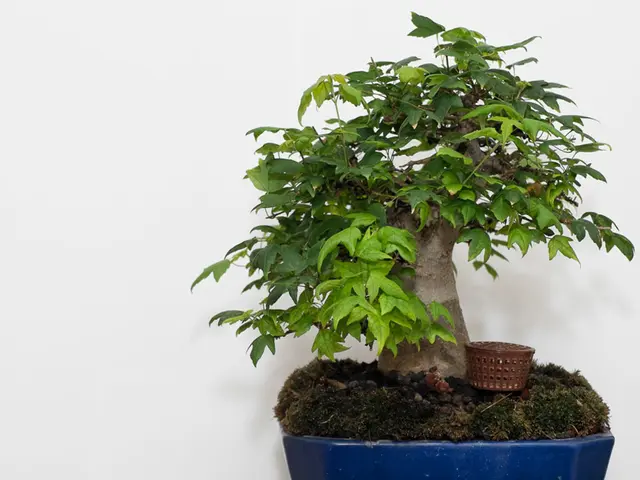Nurturing Desktop Gardens: Boosting Mental and Physical Well-being at Your Fingertips
In our fast-paced world, the absence of nature can leave us disconnected from the environment that sustains us. The bustling urban landscapes we inhabit often lack the natural touch that our ancestors were intimately connected to. Recognizing this innate human longing for a connection to nature, a concept known as biophilia, has shown significant effects on our well-being.
Biophilia means "love of life" and refers to the beneficial impact we derive from living organisms like plants and pets. A number of studies have demonstrated that the presence of houseplants can lower anxiety and blood pressure, decrease stress, and boost concentration.
Desktop gardens have emerged as a powerful solution in bridging the gap between concrete jungles and green sanctuaries we crave. Typically a small collection of plants arranged on a desk or workspace, these mini green havens provide a glimpse into the natural world. Seeing lush leaves, delicate petals, and earthy soil offers a respite from sterile surroundings, fostering a sense of calm and promoting mental clarity.
The stress-reducing effects of desktop gardens extend beyond mere aesthetics. Research has unveiled the positive impact of integrating plants into workspaces, shedding light on their multifaceted benefits. Early studies focused on the Attention Restoration Theory, proposing that exposure to natural elements could aid in combating mental fatigue.
Furthermore, the inclusion of plants in indoor environments can contribute to improved air quality and increased overall wellness. In addition, a vibrant array of plant life has been associated with reduced stress levels, increased productivity, and an enhanced mood. Workers enclosed by a verdant expanse of greenery find themselves better equipped to navigate the demands of their professional lives with newfound focus and vigor.
Delving deeper into the realm of scientific discovery, the powerful connection between humans and plant life extends beyond the surface. Nurturing a desktop garden can contribute to a reduction in depression, anxiety, and mood disorder symptoms. This therapeutic effect is due to the ability of plants to curtail the release of the stress hormone cortisol, fostering a sense of calm and tranquility. Horticultural therapy, a practice centered around connecting with plants, has emerged as a promising avenue for individuals grappling with PTSD, offering a path to improved quality of life.
The impact of desktop gardens transcends mental well-being, influencing cognitive prowess and creativity. The vibrant hues and intricate patterns of plants stimulate the brain, enabling imaginative thought processes to flourish. This synergy between nature and the mind can lead to heightened imaginative thinking, spurring individuals to innovative and creative problem-solving.
In times of pandemic-induced introspection, the demand for plants has surged. In the United Kingdom, plant sales have witnessed a spike, offering a lifeline for those craving respite from the challenges of the time. The burgeoning trend emphasizes the realization of plants' crucial role in nurturing mental well-being and fostering a harmonious balance between the human spirit and the natural world.
In summary, desktop gardens serve as oases of calm amidst the concrete jungles of modern urban environments. Beyond their visual appeal, these mini green sanctuaries offer a multitude of benefits, promoting mental health, boosting cognitive function, and uplifting our moods and emotions. Cultivating a desktop garden is a testament to our innate biophilic yearning, allowing us to bridge the gap between our modern lives and the verdant landscapes that sustain and nourish us.
- Engaging in the practice of gardening, particularly desktop gardens, demonstrates significant positive effects on mental health by reducing anxiety, lowering blood pressure, decreasing stress levels, and boosting concentration.
- Incorporating plants into a work environment can lead to improved air quality, increased overall wellness, reduced stress levels, increased productivity, and an enhanced mood, making the workspace feel more nature-like.
- Nurturing a desktop garden can also help manage depression, anxiety, and mood disorder symptoms due to plants' natural ability to curtail the release of stress hormones like cortisol, fostering a sense of calm and tranquility.
- The visual appeal and intricate patterns of plants in desktop gardens stimulate the brain, promoting imaginative thought processes and enabling individuals to tap into more creative problem-solving abilities.
- In today's world, as people seek refuge and respite from the challenges of pandemic life, there has been an increase in the demand for plants, signifying the realization of their critical role in fostering mental well-being and bridging the disconnect between modern human life and a more natural environment.








